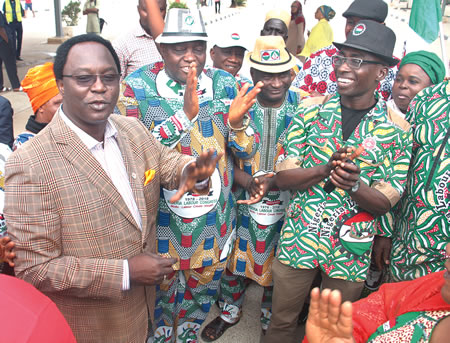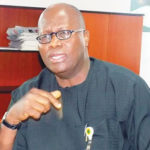THE President of Nigeria Labour Congress (NLC), Comrade Ayuba Wabba, has describe his election as the new President of the International Trade Union Confederation (ITUC) as a victory for Nigerian workers and African continent as a whole.
Metele: Atiku slams Buhari for not attending slain soldiers’ funeral
The NLC President made this known even as he reinstated that the Labour Movement in Nigeria will resist the no work no pay policy of the present government, adding that such policy has no place in modern industrial relations.
Comrade Wabba was speaking at a reception organised for him by leadership of the Medical and Health Workers Union (MHWUN) when he returned from Denmark, where he emerged the President of ITUC.
“It a victory for all of us, particularly, Nigerian workers. This also calls for more challenge and more action, it also calls for more proactive approach so that workers around the world despite the dynamics of change in technology can survive all situations.” Wabba told the workers that received him.
While also vowing that the NLC will fight the recent introduction of no work, no pay policy by the Federal Government; Waba noted that such policy has no place in modern industrial relations.
He called on President Muhammadu Buhari to allow for due consultations, saying, “let him not only hear from one side, that is from his appointees, that have failed in most cases in their responsibilities.”
“He should also hear the perspectives of the unions and the workers and he will realise that where the truth lies is where the workers are standing.”
“Most of the people that have been given responsibility in this country, when they could not deliver on their responsibility, what they do is to feed the various strata of the country with lies.
“I say so because the issue of no work, no pay has no place in modern day industrial relation. The law about no work, no pay in Nigeria has its basis from a military decree. That is Decree 54 of 1977. No government in Nigeria has implemented that law because you cannot implement the law in isolation. Therefore, we are going to engage that process very vigorously.”





